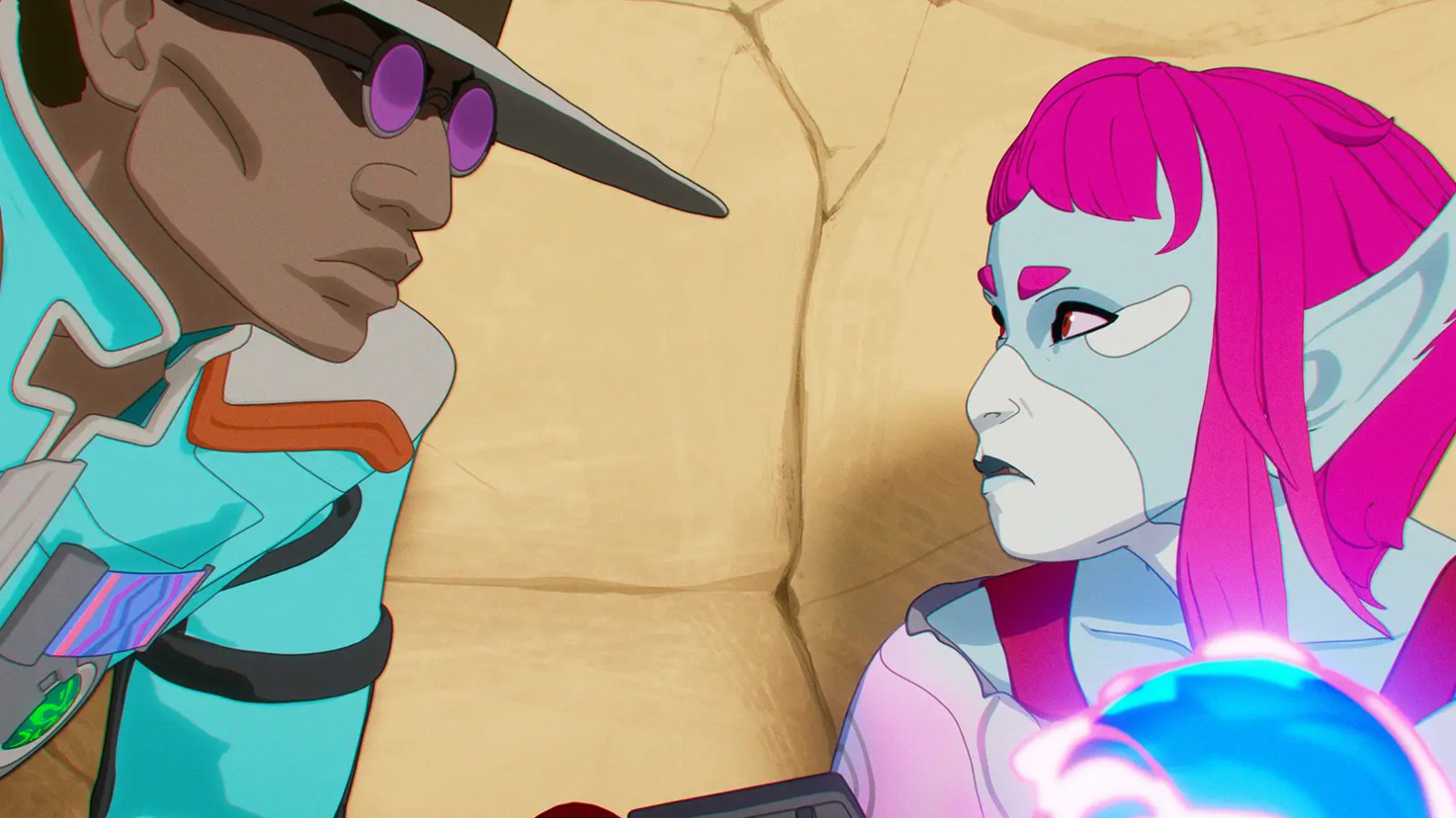Concord has been taken offline: What went wrong?

Photo: PlayStation Studios

PlayStation is taking its PVP hero shooter Concord off the market after just two weeks. The game’s Steam numbers point to incredibly low sales.
‘’At this time, we have decided to take the game offline beginning September 6, 2024,’’ said Firewalk Studios’ game director, Ryan Ellis. ‘’Concord sales will cease immediately and we will begin to offer a full refund for all gamers who have purchased the game.’’
We at MIDiA feel for the developers. Extremely talented and experienced people worked hard on Concord. It is a shame to see the game – which plays well – fail so dramatically.
Why did Concord struggle despite being fun to play?
As we told IGN, GameSpot, and Eurogamer before Concord’s removal, making a fun, high-quality shooter is not enough in the ever-crowded live-service market.
Concord misfired on several important criteria:
- Product-market fit: It lacked a unique value proposition PVP shooter players wanted, and its character designs were widely criticised
- Monetisation and business model: Concord launched at $40, a high barrier to entry in a crowded free-to-play market. Monetising cosmetics for characters that don't land with players would also not work, though
- Marketing: Concord’s story-focused value proposition confused players during its reveal. The studio also chose not to partner with streamers when this strategy worked well for Apex Legends and Valorant
- Targeting a new region / market: Concord did not take an established idea in one region and spread it to another (like Free Fire did in LATAM)
- IP power: While Concord is a new franchise, it instantly drew comparisons to Guardians of the Galaxy and lacked a differentiator
NetEase’s upcoming Marvel Rivals shares DNA with Concord, being a hero-based PVP shooter. But Rivals is better positioned for success and fulfils more of the bullet points mentioned above:
- IP power: Marvel is a strong and recognisable franchise
- Monetisation: Rivals is free to play, so Marvel fans can easily try
- Targeting a new region / market: NetEase’s involvement helped Rivals secure a license in China
The live-service market is fiercely competitive
Live-service games are oversaturated. For many genres, competing is a zero-sum game, and the game has largely been won.
There is room for new live-service games to compete, but they must fulfil more of the success criteria to stand out. Just look at the success of Helldivers 2 and the buzz around Valve’s in-beta MOBA-like shooter Deadlock.
Still, today’s biggest shooters are mostly the same as five years ago, like Fortnite, Call of Duty, Apex Legends, and Overwatch. And the only newer shooter to truly stick – Valorant – was made by live-service experts Riot who saw a gap in the market for a Counter-Strike-like hero shooter.
These games suck up so much consumer attention and engagement that convincing players – and their friends – to leave for new titles is extremely challenging.
Featured Report
What gamers really think about gen AI in games Apathy, not outrage
Game development budgets have spiralled out of control, leading game executives to cut costs and streamline their game development processes. It is no secret that generative AI (gen AI) is the tech industry’s...
Find out more…Convincing players to migrate from their forever games is tough
Concord cost $40 and players couldn't try the game for free, adding even more friction to user acquisition.
Though a tight-knit group of players might be willing to take a chance on a new game for free, $40 in today’s economy is a tough sell.
The more people who play a game, the more appeal it has. Network effects are vital for building a healthy, engaged ecosystem.
There is also a sunk-cost fallacy, as players also need to leave behind cosmetics and in-game items they bought – hundreds of dollars’ worth, in the case of highly engaged players.
Still, Concord launching free-to-play – or as part of the PlayStation Plus subscription – might have helped its chances in its overcrowded genre. It is not too late, but the damage has already been done, and Concord is missing other success criteria. The gameplay and game design in Concord are great though, so it could be salvaged into something that works.
Trend chasing is a challenge
The big first- and second-movers in a given genre are generally best positioned to win. Nevertheless, publishers have chased the battle royale trend, the hero-shooter trend, and now the extraction shooter trend.
Sadly, games take years to make thanks to development cycles spiraling out of control, and by the time trend-chasing games have launched, the market – and its players –have usually moved on.
Innovation is the way to go, as showcased by Helldivers 2’s success. Concord, like many others before it, was chasing a trend that had already passed.
Publishers like Epic Games, Activision, and Riot Games achieved unprecedented success in the live-services space with free-to-play behemoths.
To that end, some of the most revered single-player developers tried to pivot to live services. Sadly, the casualties are mounting, including:
- Marvel’s Avengers from Crystal Dynamics
- Anthem from BioWare
- Babylon's Fall from Platinum Games
- Redfall from Arkane
- Hyenas from Creative Assembly
- Exoprimal from Capcom
- The Last of Us Online from Naughty Dog
Making a successful live-service game is a drastically different skill to building a single-player game. It usually involves developing the game over time alongside a community. It takes more than just making a fun game.
What does Concord’s cancellation mean for PlayStation and other publishers?
We expect many traditional publishers to revert to single-player games and focus on what has worked for them. Exoprimal aside, Capcom did not chase the live-service trend as much as others. It doubled down on its strengths. It is all the better for it.
Meanwhile, Helldivers 2 was a hit for PlayStation. A 50% success rate in 2024 in this space is impressive. Therefore, PlayStation will continue experimenting with live services.
After all, it only takes one big live-service win to generate billions in revenue and unlock new audiences – two things PlayStation wants as the console business faces growth challenges.
PlayStation would be smart to reallocate some resources to strategies that are working better for the company, like PC launches.
For smaller developers, there is room to break through in live services and find a niche audience, like Gray Zone Warfare, a realistic shooter that sold half-a-million copies in just four days. There are also opportunities to create live-service UGC content on platforms like Fortnite and Roblox.
In the end, live services are a high-risk,high-reward venture. The risk is heightening to levels that might not be worth it for many AAA console / PC publishers that lack experience in the space.

The discussion around this post has not yet got started, be the first to add an opinion.